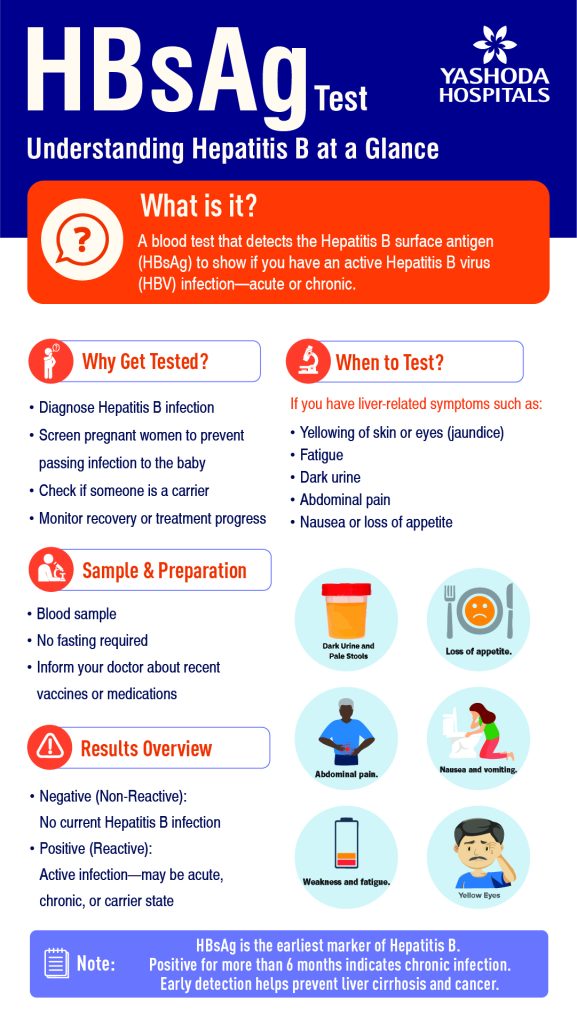What is the HBsAg Test?
HBsAg Stands For Hepatitis B surface antigen, It is a blood test used to check if a person is infected with the hepatitis B virus. If specific antibodies are found in this test, it means the person has a hepatitis B infection. This also means that the person is positive for HBsAg and that others may get this infection through their blood or body fluids. HBsAg can be detected in the blood during both acute and chronic infections.
What is the HBsAg Test used for?
The HBsAg test is used to check for acute or chronic hepatitis B virus (HBV) infection. It helps in determining the need for post-test counseling and linkage to care, as well as guiding further treatment planning for the disease. Additionally, the test can help determine if a person is immune to HBV due to prior infection or vaccination.

Understanding the test results of the HBsAg Test
A positive HBsAg test result indicates hepatitis B infection, which can be transmitted through blood. In contrast, a positive or reactive anti-HBs (HBsAb) result suggests immunity to hepatitis B, indicating the person is negative or Non-reactive HBsAb for the viral infection. It is crucial to consult a healthcare professional for accurate interpretation of HBsAg and anti-HBs test results and appropriate management.




 Appointment
Appointment WhatsApp
WhatsApp Call
Call More
More